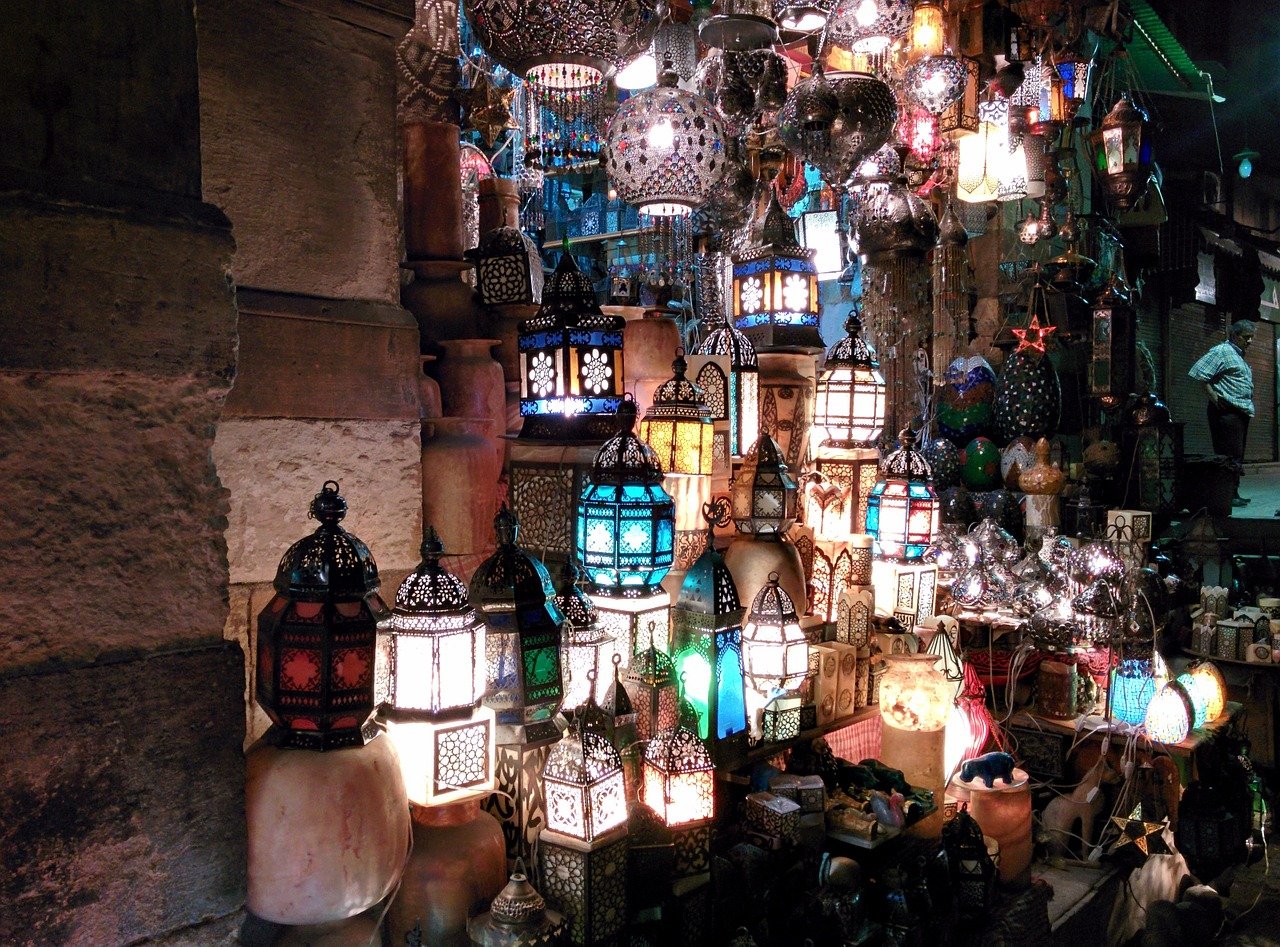Learn the most Arabic words and phrases used in Ramadan
Occurring during the 9th month of the Islamic calendar, the sacred month of Ramadan which traditionally begins with locating the crescent moon, is a month of fasting – one of the five pillars of Islam – to embrace the first revelation of the Holy Quran to Prophet Mohammad (PBUH). The roots of the word “Ramadan” come from the intensity of warmth because it appears at the time of the heat in the Arabian Peninsula; it also indicates the intensity of thirst and hunger.
Ramadan is a blessed month established in religion, culture, and history. Across the globe, Muslims mark this time with energetic festivals that are remarkable to their region and gone on through generations – the Holy month is marked with special worships and practices such as fasting, charity, and prayer.
During this time, the gates of Heaven are opened and the gates of Hell are closed. Muslims avoid food and drink during light hours in order to practice profound spiritual connections and inspire reflection. As well as being the spiritual month, Muslims start investing more time with family and friends.
The surprising benefits of fasting are beneficial both spiritually and mentally – Muslims are able to strengthen their devotion and bond with Allah. Their patience, mental activity, and self-control are increased as well as the expansion of their social activities. Last but not least, Muslims in Ramadan are able to prevent mental disorders, get rid of the toxins in the body, reduce the level of sugar and strengthen the immune system.

The blessed joy of Ramadan in Saudi Arabia
Ramadan in Saudi Arabia is like no other – despite the development of astronomy, the Saudi society prefers to stick to their old Ramadan traditions by watching the crescent and waiting in the last days of the month of Shabaan to showcase the news of the Holy month’s appearance. Since the two Holiest mosques are located in Saudi Arabia, people prepare to live in a spiritual atmosphere full of positive energy. All Muslims recite the Qur’an frequently, the mosques’ voices rise during Tarawih prayers, they congratulate their surroundings with blessed Ramadan greetings.
To fully enjoy what Saudi Arabia has to offer in Ramadan, people take special turns in creating delicious food and drink. Their tables differ greatly from one country to another, they break their fast with dates, water, and juices; among the most popular are sambosah, lugaimat, soup and desserts. As the call to prayer is heard, meaning the time of Iftar, various individuals can be singing their prayers before breaking their fast. It’s common to find people giving out dates and containers of water to strangers at Iftar time.
Nostalgic moments that have been gone with time, come back flashing in that Holy month – All families and friends come closer, the rate of visits, love, closeness, and spirituality is highly increased during this season. Shimmering under lanterns and overflowing with beautiful banners across the country to celebrate warmth and spirituality.
Arts and culture
One of the most beloved traditional decorations that come from deep within the Arabic art culture is decorating in the Holy month. For long ages, the lantern “ fanoos” was the main means of lighting from dusk till dawn in the Islamic culture, but now it is a symbol of greetings in every household. All restaurants, cafes, and building entrances use beautiful lanterns as a way of giving out the festive vibes of Ramadan.
The Islamic vocabulary of Ramadan
As we are in Takleem helping people speak Arabic and exploring the culture, here are the most common words that you will definitely hear during Ramadan.
- “Suhoor” سحور
This word is taken from “sahar”, which is the time at the end of the night before the dawn call to prayer, those who are fasting eat a meal at this time to supply the body with the energy needed throughout the day.
- “IfTar or faToor” إفطار
The time when Muslims start eating after hearing the sunset call to prayer.
- “Athan” آذان
The voice of the amplifier in the Mosques have louder expressions such as (Allah is the greatest, I bear witness that there is no God but ِAllah, I bear witness that Muhammed is the Messenger of Allah, come to the prayer, come to the success)
- “Taraweeh” تراويح
It is a long prayer that is performed every night in the month of Ramadan after the evening prayer. Its meaning comes from taking rest “rahah” راحة, as Muslims need to take a rest between each prayer and other prayers.
- “Umrah” عمرة
It is the type of worship that takes place in the sacred Mosque in Mecca at any time of the year, but Muslims are more keen to do it in the month of Ramadan due to spirituality.
- “SadaQah” صدقة
Charity; providing money, food, and clothes to the poor throughout the month because the good deed is multiplied.
- “tafTeer SaEm” تفطير صائم
Serving “Iftar” to a fasting person increases the reward.
- “Laylat Al Qadr” ليلة القدر : the night at the end of the month of Ramadan; it is the night the Qur’an is revealed, the angels descend in it, and it is a “night of peace” until dawn breaks.
- “Zakat” زكاة
This word means growth, increasing blessing, and doubling reward. Muslims give Zakat a day or two before Eid to the poor as a good deed.

Awaken your Ramadan experience with a traditional yet festive spirit in the heart of the Middle East, Saudi Arabia.
Let the divinity of this Holy month spark you with happiness and blissful thoughts, and may you fill your mind with purity and gratitude. We wish you a happy Ramadan full of flourishing spirit from all our team at Takleem!




